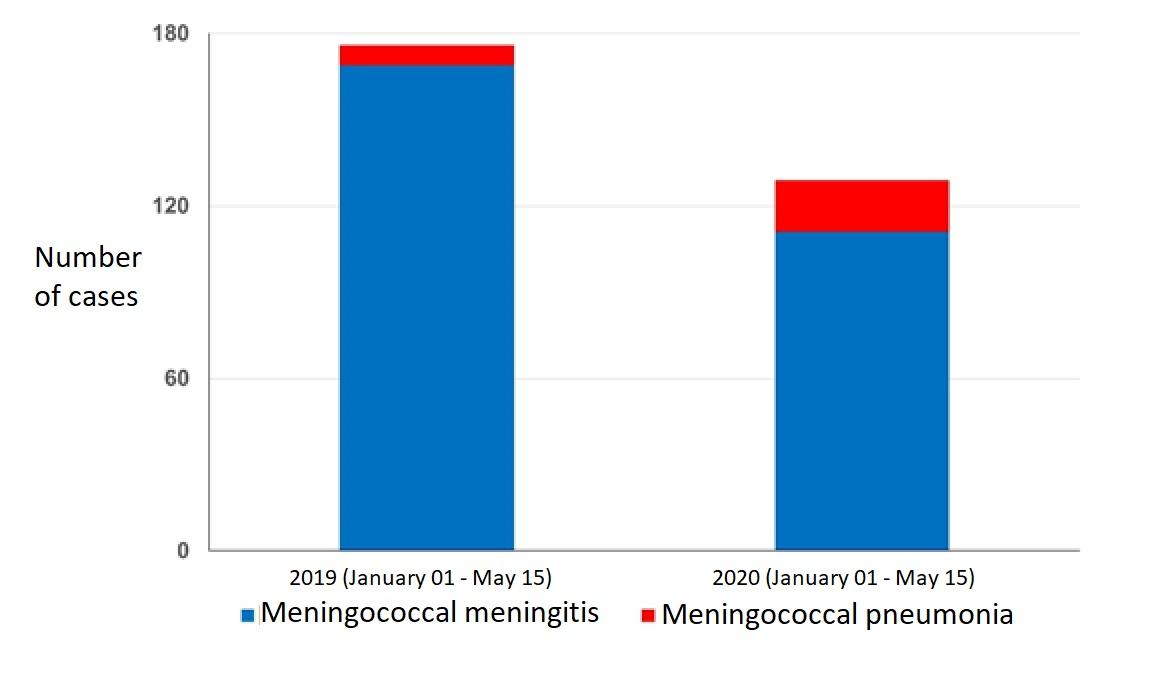Although the lockdown introduced in spring 2020 undoubtedly slowed down the circulation of the coronavirus, it also had an impact on other communicable diseases. Scientists from the Institut Pasteur investigated the repercussions of the lockdown period on meningococcal diseases by comparing the number of cases between January 1 and May 15, 2019 with the number of cases over the same period in 2020. Here are their initial findings.
Meningitis is a severe, rapidly progressing infection of the lining surrounding the brain (see the Institut Pasteur's fact sheet on "Meningococcal meningitis"). It can be caused by several different viruses, bacteria and fungi. Meningococcus (another name for the bacterium Neisseria meningitidis) is one of the main causes of acute meningitis, and it has high epidemic potential. The consequences are often devastating, with debilitating sequelae in at least 20% of cases and a fatality rate of 10% even if treated. If left untreated, bacterial meningitis results in death in virtually all cases.
Scientists from the Institut Pasteur observed a change in the number of cases of meningococcal diseases during the lockdown. "The number of cases fell dramatically year on year for some of these diseases, like meningitis in children, but increased for other forms such as pneumonia," explains Dr. Muhamed-Kheir Taha, a scientist at the Institut Pasteur and Head of the Invasive Bacterial Infections Unit and the National Reference Center (CNR) for Meningococci and Haemophilus influenzae (page in French).

Change in the number of cases of meningococcal meningitis and meningococcal pneumonia between 2019 and 2020
"The drop in the number of cases of some meningococcal diseases may be explained by the lockdown and physical distancing measures, which are likely to have reduced bacterial transmission," he continues. Regarding the increase in pneumonia cases, the scientist believes that the coronavirus may make individuals more prone to this type of infection. Synergies between viruses and bacteria have previously been observed for influenza A and analyzed by Dr. Taha's team. "More detailed research is needed to prove or discredit this theory." Moreover, given the rise in cases of meningococcal pneumonia, it may be worth exploring the benefits of immunizing adults aged over 65 against these bacteria (currently only children are immunized).
Source
Impact of COVID-19 pandemic and the lockdown on invasive meningococcal disease, BMC Research Notes volume 13, Article number: 399 (2020)
Muhamed-Kheir Taha, Ala-Eddine Deghmane
Invasive Bacterial Infections Unit and the National Reference Centre for Meningococci and Haemophilus influenzae, Paris, France
This study is part of the priority scientific area Emerging infectious diseases of the Institut Pasteur's strategic plan for 2019-2023.





